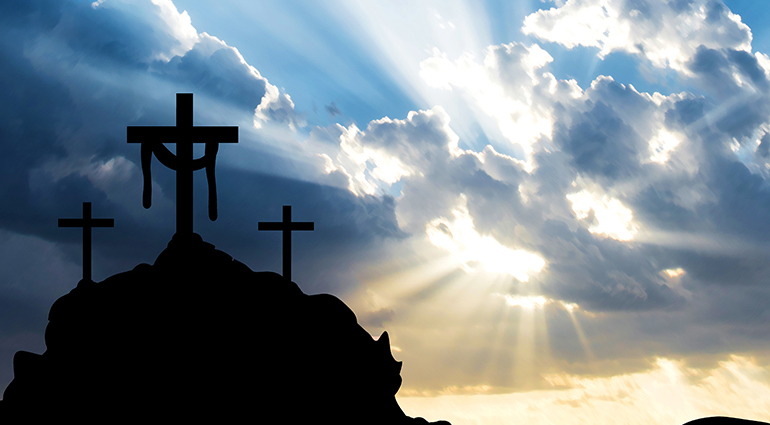The King’s Crown
They . . . twisted together a crown of thorns and set it on his head. Matthew 27:28–29
We sat around the table, each person adding a toothpick to the foam disc before us. At our evening meal in the weeks leading up to Easter, we created a crown of thorns—with each toothpick signifying something we had done that day for which we were sorry and for which Christ had paid the penalty. The exercise brought home to us, night after night, how through our wrongdoing we were guilty and how we needed a Savior. And how Jesus freed us through His death on the cross.
The crown of thorns that Jesus was made to wear was part of a cruel game the Roman soldiers played before He was crucified. They also dressed Him in a royal robe and gave Him a staff as a king’s scepter, which they then used to beat Him. They mocked Him, calling Him “king of the Jews” (Matthew 27:29), not realizing that their actions would be remembered thousands of years later. This was no ordinary king. He was the King of Kings whose death, followed by His resurrection, gives us eternal life.
On Easter morning, we celebrated the gift of forgiveness and new life by replacing the toothpicks with flowers. What joy we felt, knowing that God had erased our sins and given us freedom and life forever in Him!
INSIGHT
The horrific scene described in today’s reading serves to underscore how this fallen world and the powers of darkness held nothing but contempt for Jesus, the Son of God and Savior of the world. Yet Christ chose to suffer to redeem us: “For the joy set before him he endured the cross, scorning its shame, and sat down at the right hand of the throne of God” (Hebrews 12:2).
How might we praise our Lord for enduring the cross in order to erase our sins and give us freedom and life forever with Him?
For further study, see The Mockery and Majesty of the Cross at discoveryseries.org/hp081.











